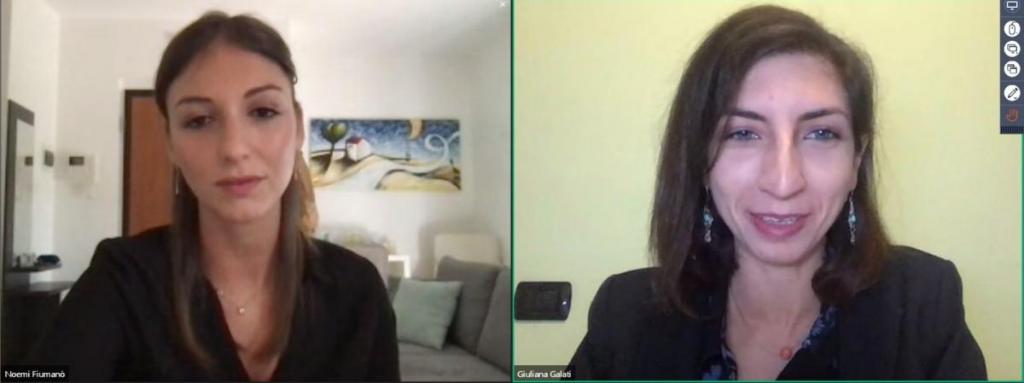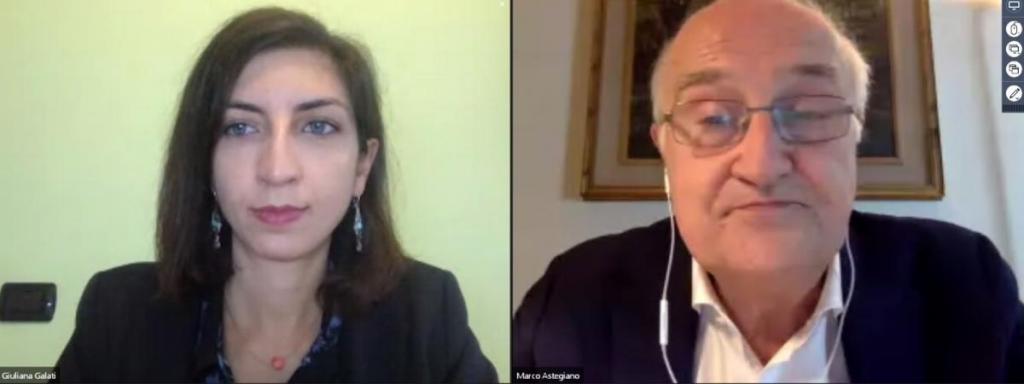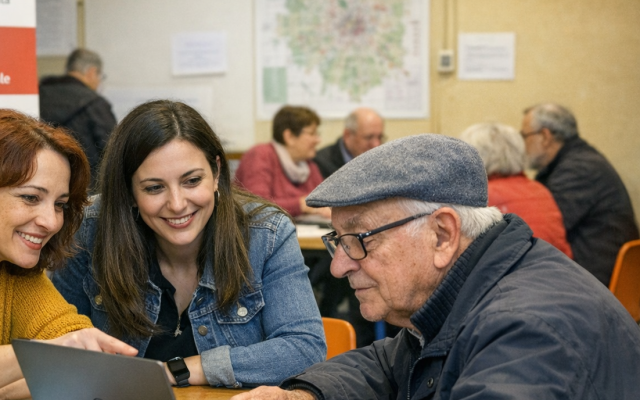Zedders in Lockdown. Growing Up during the Emergency: empathy and custom-tailored cures can change the lives of adolescents, who can rediscover school as a resource for the right to health and the value of seeking the common good. The second regional event of Factor J has just ended. This is a programme developed by the Fondazione Mondo Digitale in collaboration with Janssen Italia, the pharmaceutical company of the Johnson & Johnson Group, with the patronage of the Italian Higher Health Institute, to educate 100,000 young men and women to inclusion, empathy and respect towards people in difficult situations and/ or who are suffering from diseases. The lie event focusing on chronic inflammatory bowel diseases was organised in collaboration with the Regione Piemonte. The cover story is about a young researcher, Valeria Avataneo, who is studying the best drug dosage for custom-tailored cures.
On the "International Day for the Rights of Children and Adolescents" (November 20), students and teachers shared views with doctors, operators, educators and testimonials from associations, including AMICI Onlus, on health as a common good and on the challenge of custom-tailored cures. The live event focused on chronic inflammatory bowel diseases (IBDs), a heterogeneous group of pathologies, including Crohn’s Disease and Ulcerous Colitis that are on the rise due to unknown causes amongst children and adolescents, who represent 25% of all patients.
Can a young person lead a normal life while their organism undergoes abnormal immunological reactions? How does one live with a chronic disease and continuous phases of latency, acuteness and remission? How can cures be custom-tailored? Young men and women suffering from IBDs lose up to three months of school a year, leading to impaired learning opportunities for 6 students out of 10, not to mention a whole range of emotional and psychological issues, such as behavioural and psychiatric problems, difficulties in socializing with others and depression (European Society of Gastroenterology).
“Your body is not separate from you. When you are 20 and they tell you that you will have a disease for the rest of your life, it’s not easy to accept that you will always need cures. Patients always feel unique.
The association has allowed me to feel less alone with my invisible disease and understand the doctor’s directions on how to change my outlook,” explains Noemi Fiumanò, testimonial for the Amici Onlus Association. "We take people by hand and deal with their rights.” In her brief address, Salvo Leone, Director of Amici Onlus, also launched a message to students: “I hope there is someone amongst you that will allow us, in the future, not to have to speak about this disease. It will mean we will have resolved many problems.”

The students posed questions to Gastroenterologist Marco Astegiano, a specialist at the Turin City of Health and Science. Giuliana Galati, a scientific communicator working with Piero Angela for the SuperQuark TV Programme, acted as moderator. "The main issue faced by a doctor used to be understanding symptoms. There was little thought about the patient’s professional or academic life. Today, instead, we consider that quality of life is fundamental. We need functional departments that can put the patient at the centre of the cure. Empathy means creating a team of people who work together with patients,” explained the specialist, “and dedicate time to listening and talking with them to make sure they have understood and accepted the therapy.”

The second regional event organised by Project Factor J (Factorj.org), promoted with the patronage of the Higher Institute of Health by the Fondazione Mondo Digitale and Janssen Italia, the pharmaceutical company of the Johnson & Johnson Group, involved over 300 students connected on-line. The debate revealed the importance of therapy research, which is all the more efficient depending on how custom-tailored it is, and he central issue of empathic relations. Young researcher Valeria Avataneo enthusiastically described her work at a clinical and pharmacogenetic research lab at the Turin “Amedeo di Savoia” Hospital, where she studies how to dose drugs for individual patients, including Covid-19 antivirals.. "I like to think of research as a peacemaker," she confided. “It is always in action and never stops” [see Cover Story Vide].
"While the system is under stress due to the Covid-19 health emergency, it is important to underline the work that is carried out by those working with fragile categories that are not on the media, who sometimes suffer rarer diseases. This is an ongoing challenge.” Alessandro Stecco, President of the 4th Health, Assistance, Social Services and Elderly Policy Commission for the Piedmont Regional Council underlined the difficulties posed by the pandemic. “We must ensure high level assistance and diagnosis, cures and emergency actions to everyone.”
The objective of Project Factor J that has already held lessons and workshops for over 6000 students is to help young men and women to develop their emotional intelligence, a greater awareness of other’s issues and a greater understanding of health to avoid that diagnoses come too late (in the case of IBDs, even 5 years after initial symptoms appear). After Neuroscience and Immunology, the “Zedders in Lockdown. Growing Up during the Emergency” series of regional events will address haematology, infectious diseases and pulmonary hypertension.
“Factor J is a project we firmly believe in because it was conceived to reach young men and women, our future, with messages of awareness on the impact of pathologies and respect towards those suffering, and faith in the values of science,” points out Loretta Mameli, Patient Advocacy and Pipeline Execution Lead at Janssen Italia. “At Janssen, we work to make disease a memory of the past. Our commitment is not only towards research and treatment, but also to increase our knowledge of pathologies and create a virtuous collaboration network around patients drawing from all system operators, including patient associations, scientific companies and institutions, which we are doing thanks to Project Factor J, and, in the case of IBDs, with the “Fatti più in là” Campaign against Crohn’s Disease and Ulcerous Colitis that we just launched.”
“At school, there is always less space to work on the character of students and on the fundamental values that will guide their growth,” explains FMD Director General Mirta Michilli. Project Factor J is successfully providing a solution to this need, creating an open channel on which to seek advice and learn to manage complex emotions, transforming issues into challenges. Allowing the students to come into contact with a wide range of professions – from specialists to researchers – is a winning formula to put science back on the pedestal. The testimony of patients and the health stories that are included in the course help students to understand how to express themselves and timely ask for help, if necessary. We are restoring a fundamental function to schools as a curing community.”
The project is supported by the Rome “Campus Bio-Medico” University, as scientific partner, and a network of eight patient associations: Associazione Italiana contro Leucemie, Linfomi e Mieloma (AIL), Associazione Ipertensione Polmonare Italiana Onlus (AIPI), Associazione Malati Reumatici del Piemonte (AMaR), Associazione Nazionale per le Malattie Infiammatorie Croniche dell'Intestino (AMICI Onlus), Associazione Nazionale Amici per la Pelle (ANAP Onlus), Associazione Psoriasici Italiani Amici della Fondazione Corazza (APIAFCO), Network Persone Sieropositive (NPS Italia Onlus) and Progetto Itaca Onlus.



